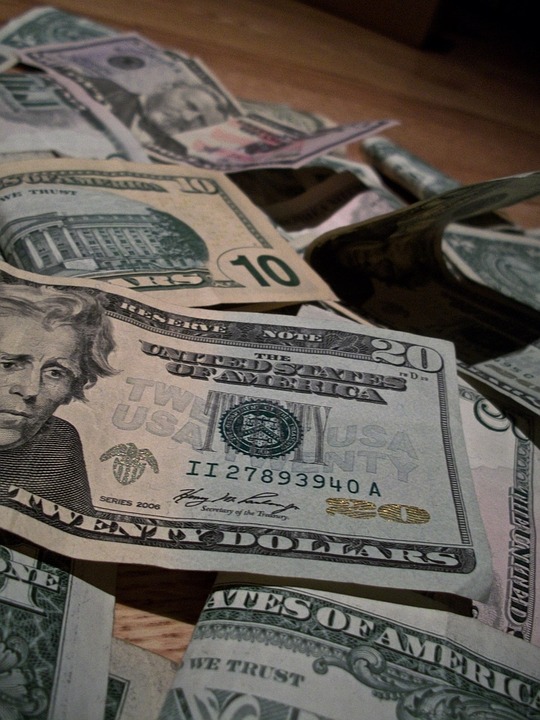Last updated Jul. 26, 2024 by Okechukwu Nkemdirim
The coronavirus pandemic has brought a whirlwind of changes to everyone’s daily lives. One aspect heavily affected is the financial behavior of individuals. With uncertainty outsourcing normalcy, some may find themselves gravitating towards withdrawing large sums of cash to keep on hand. While it may seem like a prudent measure to ensure liquidity during unpredictable times, there are several reasons why withdrawing too much cash might not be the best course of action. This article explores these reasons in-depth and offers a FAQs section to dispel common myths and concerns.
The Health Risks
Contaminated Currency
The COVID-19 virus is known to survive on surfaces for varying amounts of time, depending largely on the material. Banknotes and coins can become vectors of disease transmission. When cash exchanges multiple hands, the chance of spreading harmful germs increases. According to a study published in The Lancet, the coronavirus can survive on paper money for up to four days. So every time you handle cash, you may be exposing yourself and others to the risk of infection.
Avoiding Centralized Places
Banks and ATMs are usually crowded, especially during crises when people rush to secure their funds. This clustering disregards social distancing measures intended to mitigate virus transmission, increasing your exposure to other people who might be infected. It’s better to rely on digital banking methods readily available from the safety of your home.
The Financial Risks
Hoarding Cash
Withdrawing large sums removes that money from your bank account, where it could otherwise be earning interest. Even savings accounts with modest interest rates will provide some financial gain over time, better than letting cash sit idle for months. More importantly, hoarding cash at home is a poor security measure compared to the advanced fraud detection systems and insurance protections offered by banks.
The "Run on the Bank" Phenomenon
A large-scale withdrawal of funds can destabilize financial institutions. Banks operate on a fractional reserve system, which means only a fraction of bank deposits are backed by actual cash-on-hand. The remaining amount is loaned out or invested. A sudden and substantial increase in withdrawals can lead to a liquidity crisis, making it harder for a bank to fulfill these requests. This scenario fuels further panic and creates a downward spiral, contributing to an economic crisis.
<div class="short-answer">
<style>
.short-answer {
position: relative;
padding: 20px;
padding-top: 30px;
background: #DFF9ED ! important;
border-color: #b0edd2 ! important;
border: 2px solid ! important;
border-radius: 6px ! important;
margin: 22px -3px 23px 0px ! important;
}
.short-answer h3 {
margin-top: 0 ! important;
}
</style>
<h3> ✓ Short Answer</h3>
<p>Withdrawing large sums of cash during the COVID-19 pandemic increases health risks through contamination and exposure in crowded banks or ATMs. Financially, it removes money from interest-earning accounts, increases the danger of theft, and could destabilize the banking system due to a potential ‘run on the bank’ phenomenon.</p>
</div>Digital Solutions
Mobile and Online Banking
Many banking institutions have strengthened their digital infrastructures to accommodate increased online activity. You can check your account balance, transfer funds, pay bills, and even deposit checks using mobile and online banking solutions, all from the comfort and safety of your home. By relying on these services, you adhere to social distancing guidelines, thereby contributing to public health efforts.
Contactless Payments
Increasingly popular before the pandemic, contactless payments offer another robust solution to avoid handling cash. Whether through credit cards, debit cards, or mobile wallets, these transactions minimize physical touchpoints, reducing the risk of contamination. Moreover, advancements in fintech have made these payments nearly instant and more secure than ever.
Expert Recommendations
Financial Advisors
Financial advisors recommend keeping around three to six months’ worth of expenses in an emergency fund. However, they caution against withdrawing all these funds in cash. Digital access to an emergency fund is usually more practical and offers the same, if not better, liquidity. It’s always wise to seek guidance from a financial advisor to tailor financial strategies suited for uncertain times.
Government Guidelines
Governments across the globe have assured the public that banks remain functional and secure. Special measures have been put in place to ensure banking consistency during the pandemic. Public officials advise against panic withdrawals, reinforcing the robustness of digital banking methods.
Psychological Aspects
False Sense of Security
Having cash on hand can create a false sense of security. While it may feel like you’ve safeguarded yourself against financial collapse, in reality, you’re exposing yourself to physical risks (theft) and financial inefficiencies (loss of interest). The psychological comfort gained is often short-lived and outweighed by the tangible disadvantages.
Community Impact
Financial behavior during crises is often driven by individual concerns but can have collective repercussions. By hoarding cash, you are also exacerbating public anxiety and contributing to broader financial instability. Following recommended financial practices mitigates these risks and supports communal economic health.
FAQs
Is it safe to handle cash during the pandemic?
It’s safer to minimize handling cash. The virus can survive on surfaces like paper money for several days, increasing your risk of infection. Favor digital or contactless payment methods wherever possible.
Do I need to withdraw large amounts of cash in a crisis?
No, withdrawing large amounts can expose you to additional financial and physical risks. It’s generally better to rely on secure digital banking.
How much cash should I have on hand?
Experts recommend minimal cash for immediate needs, equivalent to a few days of expenses. Reserve larger sums in easily accessible digital forms like savings accounts.
What will happen if everyone starts withdrawing cash?
Large-scale withdrawals can lead to a "run on the bank," destabilizing financial institutions. This scenario can contribute to broader economic instability.
Are online and mobile banking safe?
Yes, most financial institutions employ advanced security protocols to protect your online and mobile transactions. Regularly update your passwords and use multi-factor authentication for added security.
What alternatives do I have to using cash?
Digital banking, contactless payments, mobile wallets like Apple Pay, Google Wallet, and peer-to-peer payment systems like PayPal, Venmo, and Zelle offer convenient and secure alternatives.
Will banks run out of money?
Banks operate on a fractional reserve basis and are generally supported by stringent financial regulations designed to handle crises. Government and central bank measures also exist to ensure liquidity.
In summary, while it might seem like holding cash is a failsafe during an unpredictable period like the coronavirus pandemic, the risks and downsides outweigh the perceived benefits. Enhancing digital finance literacy and adopting contemporary financial practices provide a safer, more efficient way to manage your money while contributing positively to public health and economic stability.




